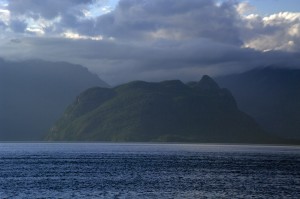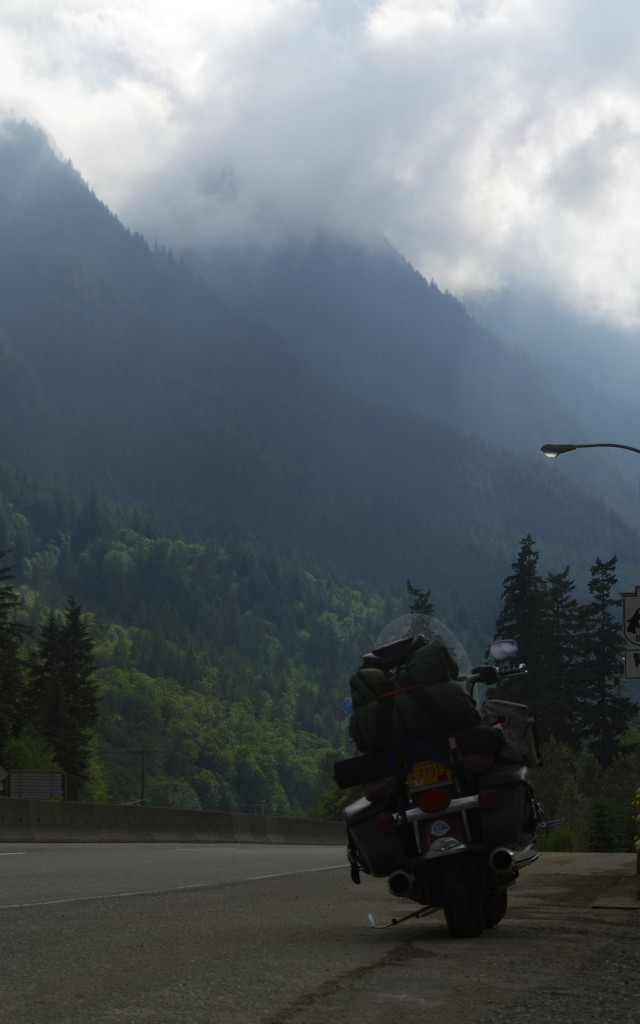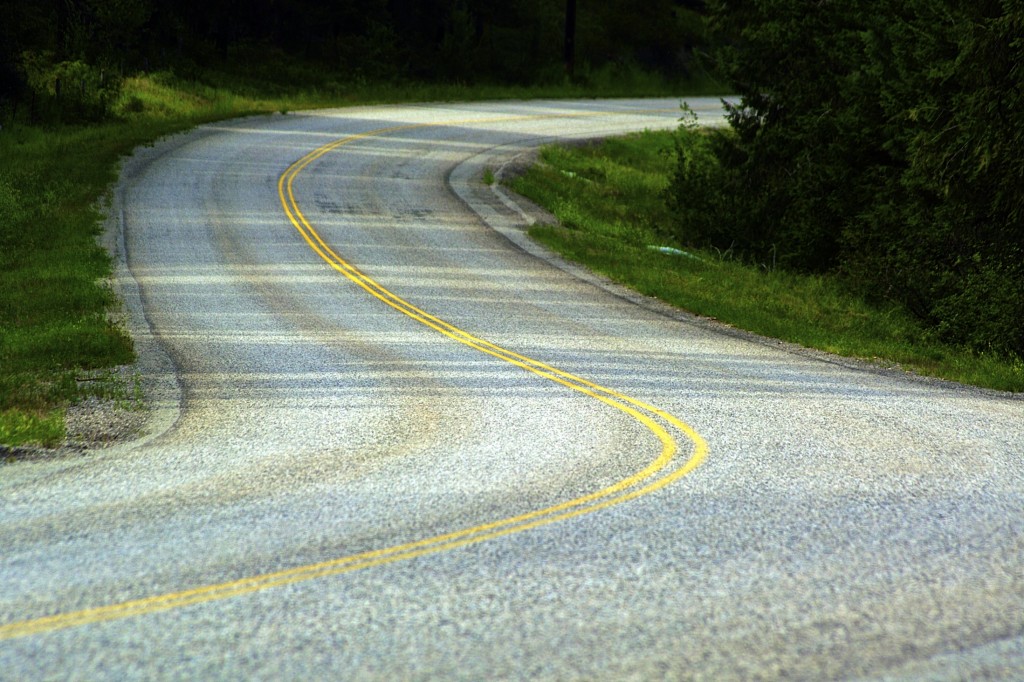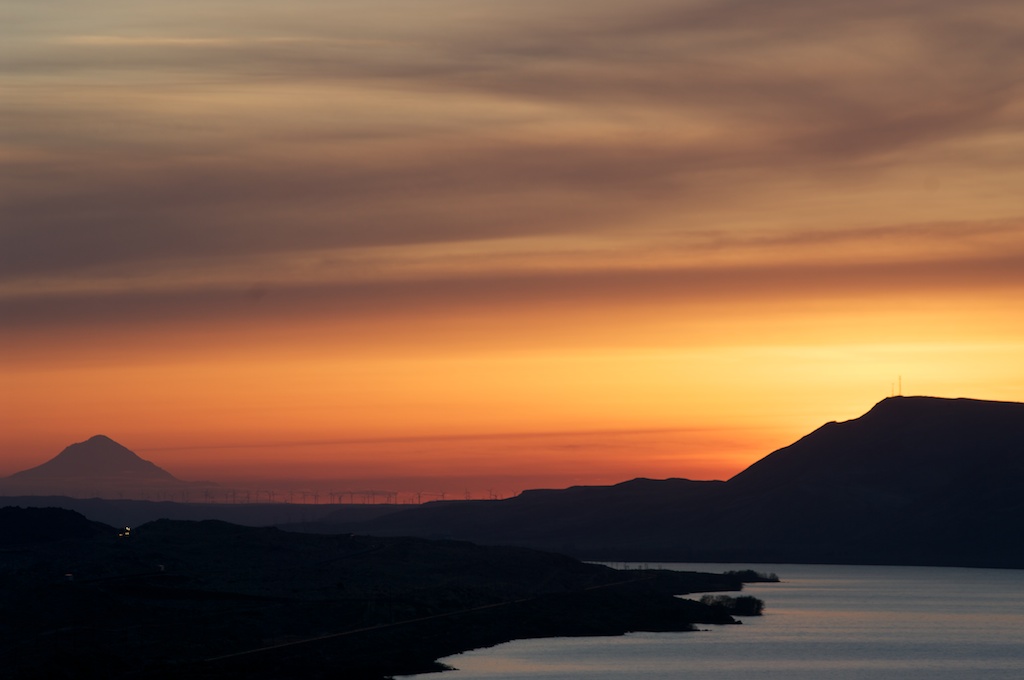It was a cool spring morning in the spring of 1911. Well, to be honest, I don’t know what the weather was like. I don’t even know if it was spring. No one still living knows. But sometime in that year, my great-grandpa Keller made a decision that has echoed through 4 generations. He took a job. Not just any job, he was only thirteen, and the job he found was one of the only ones available to his circumstances. He became a messenger for Western Union in Indianapolis, Indiana.

 Delivering messages across that sprawling city required speed, and to give him that speed, they gave him one of the newest ways of getting around quickly in a crowded city. They put him on a Thor motorcycle. In doing so, the company set in motion a chain of events that would span 4 generations of riders. Just last week, I came face to face with the legendary bike that started it all.
The event was the Coos Art Museum Exhibit in Coos Bay, Oregon. For 45 days in June and July, they exhibited some of the rarest motorcycles in existence, including a 1909 Thor similar to my Great-Grandpa’s. And this last week, with my father riding down from Tillamook, we went together to take a step back into our own personal history, and the history of the world of motorized cycling itself.
Man, it was an awesome exhibit! The 1909 Thor, was, according to my dad, the same kind of bike that my great-grandpa rode as a western union messenger in the early 1900’s, but it was in rough shape. There was a lot of rust, and I doubt if it ran. I wanted to take that poor forgotten thing home and give it some decent treatment. It had curiously long, tall cylinders, very straight, with very simple heads. I thought that seemed kinda odd compared to the strangely shaped heads and the tapered cooling fins on all the other bikes on display. 


Across the museum floor from it, a 1914 Cyclone (featured in the promotional online video for the exhibit) had the coolest engine, with external valves, and levers, and tubes going to the strangest places. There were parts that looked more like saxaphone components than an engine. I felt like if I could just get that machine into my garage, I could watch those valves – that machine, clicking and clacking all day long, puttering along with its guts out on display. I’d probably sit there with an antique oil can, poinking away periodically just to feel helpful. The leaf springs were absolutely whacky, it almost looked like they had taken a model T’s springs, cut them into segments, and placed the sections strategically around the bike – a spot up front for the front forks, another spot vertically in back for the swing arm, and what seemed to be the center section wedged under the saddle. There were a few mechanical curiosities I couldn’t figure out, such as the apparent pump knob on one of the openings on top of the tank. I finally realized it was a pressurizing pump and cap, kind of like Coleman camp stoves, to pressurize the dry sump oil system. 


In addition to the Thor and Cyclone, there was a 1920 Indian of the same era as my Grandpa (Great-grandpa Keller’s son) first rode as a teenager and fell in love with the wind. I had a chance to sit with my Grandpa just two months ago, stopping by to visit while returning from a cross-country ride to Quebec. I asked him how he got started in motorcycling. It seems he had a friend whose dad had a car dealership, and they wound up with this Indian one day. His friend asked if he wanted to ride it, so they went out into the country, and the friend set him up, told him how to steer, and sent him off. What he didn’t tell him was how to use the clutch, so Grandpa was free to ride – but couldn’t stop completely. So he rode for miles until he found a wide place on that country lane where he could turn around without stopping. And he was hooked on the wind from that day on. Even at 90, my grandpa’s face still reflects that moment of joy like it was yesterday.
They had a fine collection of Harleys across a long span of years, starting with the first motorcycle we saw as we paid for our admission, a grey 1911 with leather belt and a ratcheting lever for a clutch. My dad and I spent some time re-living the heady times when this idea of engaging a motor to push you along the ground with a lever – it was like being kids again. I decided at some point that my dad and I would have been awfully good friends if we’d been kids at the same time. A couple other guys were walking through and sort of got caught up in our time-warp conversation. Pretty soon there were 5 or 6 guys imagining themselves with elbow-long gauntleted gloves and leather overcoats gadding about the streets of a city without traffic lights. I know that if truth were told, at some point every one of us flinched our left arm pulling that imaginary lever. Just a lever – and yet so much behind it.


And then there was the ’42 Flathead that my dad said was one of the models Grandpa had when my dad was a kid (again, not great-grandpa, but grandpa). My dad recalled that his sister always got to sit on the outside of the sidecar because she was older, and his mom sat on the back, so he was stuck up against the engine unable to see anything. His only revenge was winter, when he was the only warm one of the bunch. I looked hard at the area by the motor there between the back tire and the seat, where he would have been up against as a little boy, and could feel the pain of being so close – and yet so far – from the summer wind whistling through the Indiana countryside. And I glared at my aunt in my mind, for being so lucky – and so oblivious to her fortune. 

The 1920-ish Harley with double headlights was one of my favorites. As we were looking at it, it struck me that the only gauge was an ammeter, which read, left to right, from -10 to 0 to +10 amps. I said to my dad, “Ah, gone are the days when the single most important piece of information needed to be given to the rider by the machine was not just whether or not amperage was being produced, but how much, and in which polarity”. Apparently there was no speed possible that warranted an indicator to tell the rider of his accomplishment. That would have to wait a few more years.
My dad nudged me a couple bikes down from there, at the 1930’s Harley track bike. My Great-Grandpa Sutton had gotten his start in racing on just such a bike. He went on to be a prominent Sprint car builder in Indianapolis, and even built an Indy-car once. But motorcycles was where he started.


There were a couple of very interesting Royal Enfields, including the “Flying Flea”. This bike was made for wartime, and came with its own steel tube crate, and parachute. We got a kick out of the name. The exhaust manifold pipe, where it left the exhaust port, bulged curiously, and we thought hard about the reason for that for a few minutes. As near as we could deduce, it bulged to give extra room for the quickly exhausting gases, sort of a buffer zone for extra capacity. Honestly, we didn’t really know, but the 5 minutes spent bantering about the possibilities was a lot of fun. Sometime, years from now, I’m going to find out just out of the blue somewhere, and I’m going to call my dad up at that very moment and let him know. I hope he’s still around to take my call.


In the very back there was a 1958 BMW with its sideways-rotating left-side kick start, and a lever that had to be a gear shift, down under the rider’s right leg. I imagined myself having to hang on and clutch with the left hand, while reaching around below my right leg to shift. It would have been a challenge. To be honest, the rear seat on that one looked as comfortable as anything we saw. I love the shape of the boxer engine, and there was nothing hiding its glory.


In addition to the truly antique, quite a few of the classics from across the years were present. One of my favorites was the ’79 Honda CBX. A friend of mine had one of those up at Walla Walla where I went to college. He’d let me go riding through the rural roads through the Wheat Country on weekends. Dang, those were good times. Six cylinders and rolling hills of farmland. Oh…MAN!! What a blast that bike was.
After we’d seen everything, we stood near the entrance, not really wanting to leave, but not having anything more to see either. So I turned to my dad, and said, “Ok, I’ve got a shoe box with all the keys to all these bikes in it. You get to pick out two. Which ones?â€
It was clearly a struggle for him, but in the end, it came down to the ’48 Indian, with the wrap-around fringe treatment on everything, bright yellow paint, and full wheel fenders, and the 1911 Harley with its belt-clutch. Then he reversed the question on me.
I went with the Thor.
And the 1920 Harley with its twin headlights and ammeter.
And maybe…well, maybe the ’58 BMW…
But that 1914 Cyclone that would entertain me just sitting in the garage running…
and the ’42 Harley Flathead. I would always make sure every kid got to sit in the wind…
But that ’50-something Vincent, with its knobs and levers and the sheer mechanical-ness of it, oh yes! I live for something to adjust, and that thing would let me adjust EVERYTHING!


So which did I come away with?
All of them. All of them, wrapped up in my head. Every time I look in the mirror of my ’08 Road King, all those bikes are looking back at me, just above where the print says, “objects may be closer than they appearâ€. When I grasp the handles of my ’77 BMW R100/7, and push it off the center stand, out of the garage, and out around the 10-mile country loop I use to test adjustments, they will be there following me, making sure I remember that it’s ok to be broken down sometimes, that there’s something normal about the quiet side of a back road, with the breezes blowing through the grass and the faint whine of cars on the distant highway, and the clank of an unexpected drop of a wrench to punctuate the silence. That hand lever will stick in my mind in that place where “things I should grab to engage the engine†sits. The low, swept-back handlebars will always seem right somehow, regardless of how many times I reach for my own raised bars. If I sit very quiet on my stool in front of the workbench and look out at the empty space in my garage, a Cyclone will always be pumping its valves up and down. In his place in my heart, my 13-year old Great-Grandpa Keller, desperate to grow up and make a living, will be making these mechanical marvels become practical. Grandpa Keller, with his love of the wind, will always be whispering in my ear to get rid of the windscreen and throw it in the corner. Great-Grandpa Sutton will always be pushing my bike to be faster, and better, to tinker with it until I figure it out – and then tinker just a little more. And my dad, whom I learned to lean with in the corners when I was just a child riding with him on the back of a Honda 350 scrambler on the back roads of southern California – he and I will always hold a special scorn for those who don’t appreciate the outside seat in the summer.
Like this:
Like Loading...

 Filed Under :
Filed Under :  Sep.4,2013
Sep.4,2013
 Tags :
Tags : 






